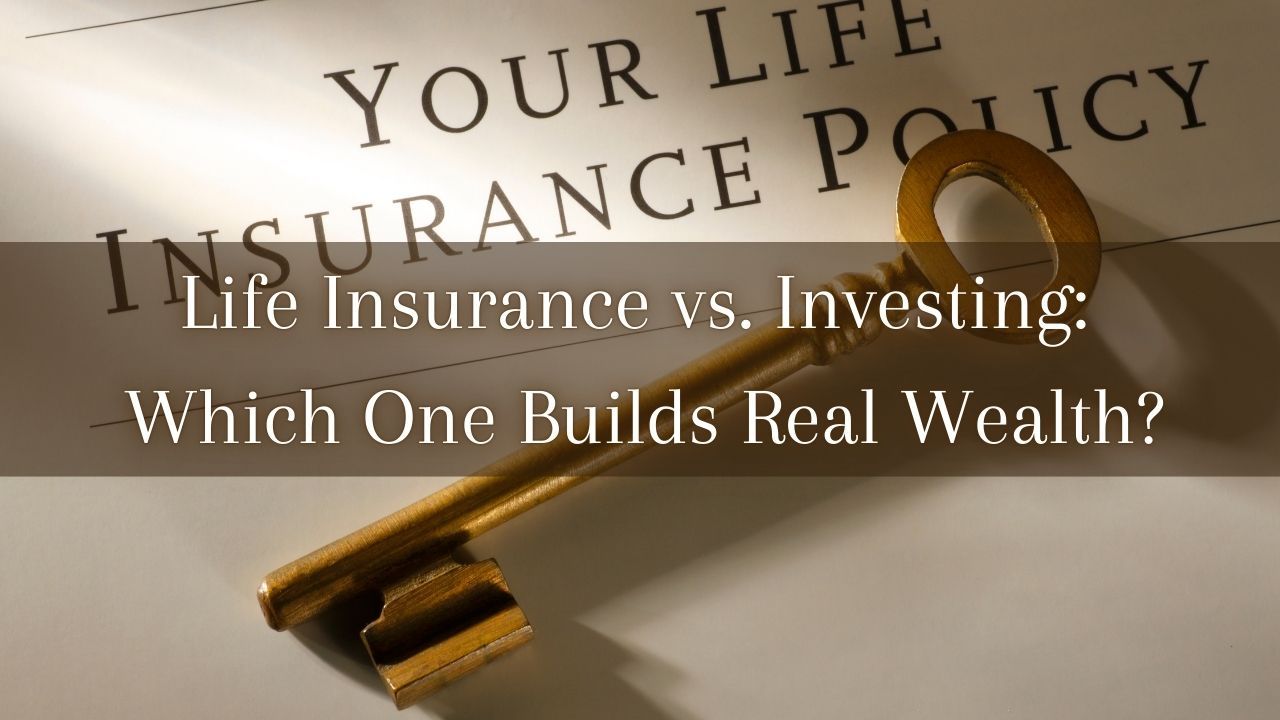Life Insurance vs. Investing: Which One Builds Real Wealth?
May 26, 2025
Life Insurance vs. Investing: Which One Builds Real Wealth?
Let’s talk about something that’s been marketed to women as if it’s the same thing:
Life insurance vs. investing.
Spoiler alert: They’re not interchangeable. And understanding the difference can save you thousands—and years of frustration.
Whether you’re wondering where to start or questioning if your “investment-based” life insurance policy is actually doing its job, this post breaks it all down so you can make confident, aligned decisions.
What’s the Real Purpose of Life Insurance?
At its core, life insurance is a tool for protection—not wealth creation.
You pay a premium, and in return, your loved ones receive a death benefit if you pass away. It’s meant to protect your family, your business, or your estate—not to grow your net worth.
But over time, insurance companies began offering cash value or investment-style policies, turning life insurance into a product that’s often pitched as both protection and investment.
And that’s where things get messy.
A Quick Breakdown of Life Insurance Types
Term Life Insurance:
Simple, affordable, and temporary. No cash value, just pure protection. Ideal if you need coverage while raising kids, paying a mortgage, or building your financial base.
Whole/Universal/Indexed/Variable Life Insurance:
These permanent policies offer lifetime coverage and a cash value component. The pitch? You’ll build wealth while staying insured.
The truth?
These policies come with high fees, complex structures, and much slower growth than most traditional investments. In many cases, you’re locking up money that could be working harder for you elsewhere.
The Real Deal on Investing: Brokerage & IRA Accounts
When you invest through a brokerage account or IRA (traditional or Roth), you’re putting your money to work—buying assets like stocks, ETFs, or bonds that have the potential to grow over time.
Here’s why this matters:
1/ More Control:
You decide where your money goes. Want to avoid industries that don’t align with your values? Done. Want to shift strategy as your life evolves? Easy.
2/ More Growth Potential:
Historically, the stock market delivers 7–10% average annual returns. Compare that to the 2–4% guaranteed growth in most life insurance policies.
3/ More Liquidity:
Need to access your money? Brokerage accounts offer flexibility. With insurance, accessing your cash value can mean loans, fees, or reducing your death benefit.
4/ Lower Fees:
Most investment accounts come with minimal fees—especially compared to the layered costs of permanent life insurance.
So, Should You Ever “Invest” Through Life Insurance?
Here’s the truth your financial advisor may not be incentivized to share:
Life insurance is not an investment strategy.
It’s a protection plan—with a side of underperforming, fee-heavy cash accumulation.
Now, if you need life insurance? Great.
If you want to build wealth? Look to the stock market, tax-advantaged accounts like IRAs, or even high-yield savings and brokerage strategies that align with your risk tolerance and values.
You deserve to have your money working for you—not locked in a policy you don’t understand, with fine print that doesn't match your goals.
Here’s the Million Dollar Question:
Do you want your money to protect your family or build your future?
You can do both—but you likely need two different tools.
Use life insurance for what it’s best at: security.
Use investments for what they’re best at: growth.
Need help untangling this?
This is what I do with my clients:
We walk through your values, your goals, and your numbers—then build a money strategy that supports both peace of mind and long-term wealth.
If you’re ready to stop feeling uncertain about your financial choices, let’s talk.
You don’t need a finance degree to make powerful money moves.
You just need someone who can translate the noise into clarity.


